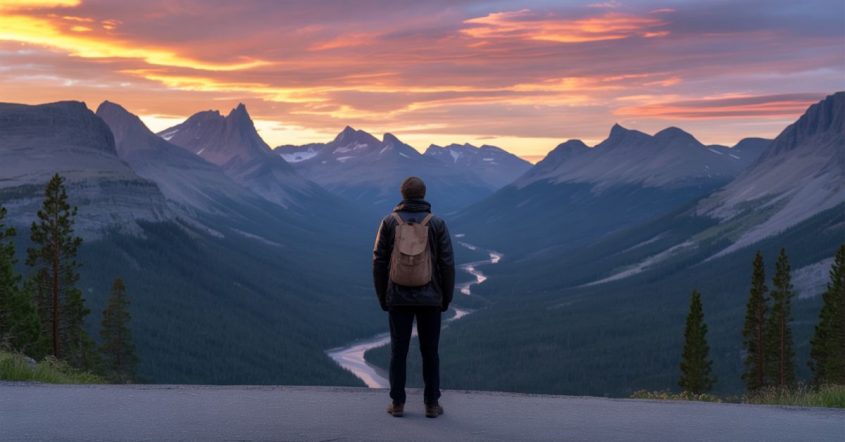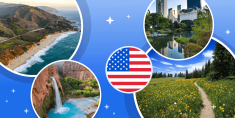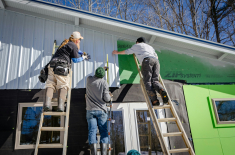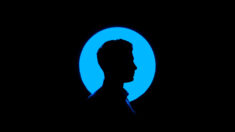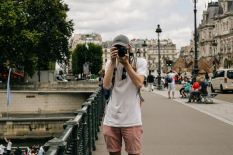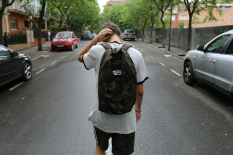When someone tells you “Happy journey,” it’s more than just a polite phrase. It’s a thoughtful gesture expressing care, well-wishes, and safe travels. Whether it comes from a colleague, friend, family member, or a passerby, it holds emotional value. These words reflect kindness and the hope for a smooth, enjoyable travel experience.
But how should you respond to such well-meaning words? Should you keep it brief with a simple “thank you,” or choose a more expressive reply? Your answer can depend on the relationship, tone, and context of the farewell. In this article, you’ll explore a wide range of responses, from short and polite replies to warm, creative, and emotionally rich messages that leave a lasting impression.
Common Simple Replies
Sometimes, a simple response is the most effective. These are easy to remember, universally acceptable, and suitable for nearly any situation.
1. “Thank you!”
This short and sweet phrase is polite and direct. It’s ideal for casual settings or brief encounters, like responding to a flight attendant, taxi driver, or cashier.
2. “Thanks! Same to you.”
This is a courteous way to return the good wishes. If the person is also traveling or you want to reciprocate the sentiment, this reply adds a friendly touch.
3. “Thank you so much!”
Adding “so much” personalizes the expression and conveys deeper gratitude. Use this with friends, relatives, or anyone you feel especially thankful toward.
4. “I appreciate that.”
This formal yet sincere response shows you value the other person’s words. It’s great in professional settings, such as with coworkers, clients, or mentors.
5. “Thanks! I’ll keep that in mind.”
Perfect when the good wishes come with advice or concern, such as “Stay safe!” or “Don’t drive too fast!” This reply shows attentiveness and gratitude.
These replies are respectful and easy to use in both personal and professional contexts, ensuring your appreciation is clear and polite.
Expressing Confidence or Assurance
When someone wishes you a happy journey out of concern, offering a confident and reassuring reply can ease their mind. These responses express appreciation while also conveying readiness and self-assurance.
1. “Will do!”
This upbeat and informal reply is commonly used with friends, coworkers, or service staff. It suggests agreement and positivity.
2. “I will! Thanks for the kind words.”
A gentle, appreciative response for someone who is genuinely hoping you stay safe or have a good time. Ideal for friends or acquaintances.
3. “Absolutely! I’m excited for the trip.”
This response adds enthusiasm and shows you’re looking forward to the journey. It helps energize the conversation while acknowledging the wish.
4. “That means a lot, thank you!”
This thoughtful and heartfelt reply works well when someone close wishes you well with emotion or sincerity. It deepens the emotional connection.
5. “I’ll be extra careful, promise!”
Lighthearted and affectionate, this is a great reply to someone worried about your safety. It reassures them while keeping the tone friendly.
Confidence in your reply can help others feel comforted and valued, especially if they’re concerned about your well-being.
Creative and Heartfelt Alternatives
When someone dear to you wishes you a safe journey, it’s a chance to return that care with warmth and sincerity. These thoughtful replies go beyond standard etiquette.
1. “Thank you! Your kind words mean a lot.”
A warm response that lets the other person know their gesture didn’t go unnoticed. It’s personal and emotionally expressive.
2. “Thanks! I’ll think of you during the trip.”
This message offers a sense of emotional closeness. Great for partners, best friends, or anyone who holds a special place in your heart.
This reply promises continued connection and suggests that your journey is also a shared experience.
4. “Your words made me smile. Thanks for thinking of me!”
Perfect for social media replies or text messages. It shows that their good wishes had a real emotional impact on you.
5. “Looking forward to coming back and catching up!”
A great way to let someone know you care about staying connected even after the trip.
These types of replies nurture closeness and demonstrate gratitude through thoughtful, emotionally aware language.
Cultural and Regional Nuances
While “Happy journey” or “Safe travels” is common, there are slight regional variations in how travel well-wishes are expressed. Understanding these helps in choosing the right response.
1. Word Choice Differences
People might say:
- “Drive safe.”
- “Travel well.”
- “Have a smooth flight.”
- “Enjoy your vacation.”
These alternatives carry the same message and should be responded to with sincerity.
Sample replies:
- “Thanks! I’ll try to relax and enjoy it.”
- “Appreciate it! I hope it’s smooth all the way.”
2. Formal and Informal Settings
- Formal setting: “Wishing you a productive and safe trip.”
- Reply: “Thank you. I’ll make sure to follow up after the trip.”
- Reply: “Thank you. I’ll make sure to follow up after the trip.”
- Informal setting: “Have a blast!”
- Reply: “Thanks! I’m planning to.”
3. Language-Based Variations
Even among English speakers, different expressions can appear:
- “Bon voyage!” (commonly used in celebratory contexts)
- “Take it easy on the road.”
Respond accordingly: - “Merci! Will do!”
- “You got it. Thanks!”
Responding with awareness to cultural and regional phrasing reflects emotional intelligence and social awareness.
Tone-Matching Strategies
How you say something matters just as much as what you say. Matching the tone of your response with the tone of the wish shows attentiveness and care.
1. Friendly and Casual
- Wish: “Enjoy your weekend getaway!”
- Reply: “Thanks! Can’t wait to unwind.”
2. Playful or Joking
- Wish: “Bring me back a souvenir!”
- Reply: “Only if you guess where I’m going!”
3. Respectful or Formal
- Wish: “Safe and productive travels.”
- Reply: “Thank you. I’ll make the most of it.”
4. Emotional and Heartfelt
- Wish: “We’ll be thinking about you.”
- Reply: “That means so much. I’ll stay in touch.”
5. Caring Advice
- Wish: “Don’t overwork yourself during the trip.”
- Reply: “I’ll take it easy. Thanks for the reminder.”
Tone-matching builds stronger conversations and helps ensure your message resonates with kindness and appropriateness.
When the Wish Is More Emotional or from Loved Ones
Wishes from close family or significant others often carry deeper emotional meaning. Replying to them should reflect that depth.
1. From Family Members
- Wish: “Be safe and call us when you get there.”
- Reply: “Of course. Love you all so much. I’ll check in as soon as I arrive.”
2. From a Partner
- Wish: “I’m going to miss you like crazy. Travel safe.”
- Reply: “I’ll miss you more. Counting the days till I’m back.”
3. From Close Friends
- Wish: “You better not forget us while you’re having fun!”
- Reply: “Impossible. You’ll be getting daily updates!”
4. From Children
- Wish: “Bring me a gift!”
- Reply: “You got it, kiddo! Be good while I’m gone.”
Replies that mirror the emotional tone show love, reassurance, and attentiveness, helping to ease worry and maintain strong bonds.
Putting It All Together – Sample Scenarios
Here are real-life examples that demonstrate how to adapt your replies depending on the setting:
Scenario 1: Workplace
Colleague: “Enjoy the conference and safe travels!”
You: “Thanks! I’ll share the key takeaways when I return.”
Scenario 2: Airport Staff
Gate Agent: “Have a pleasant flight.”
You: “Thank you! Appreciate the smooth check-in process.”
Scenario 3: Text Message from a Friend
Friend: “Can’t wait to see your vacation pics. Have fun!”
You: “Absolutely! I’ll spam you with photos.”
Scenario 4: Family Chat
Parent: “Don’t forget your passport!”
You: “Haha, double-checked! Thanks, love you!”
Scenario 5: Neighbor
Neighbor: “Hope the drive goes smoothly.”
You: “Thank you! I’ll update you when I reach.”
Each example shows how the context can guide your tone and choice of words.
Conclusion
Responding to “Happy journey” is more than just good manners, it’s an opportunity to show gratitude, warmth, and connection. Whether it’s a quick “Thank you!” or a heartfelt message to a loved one, your reply can make a simple exchange more meaningful. Matching the tone and considering the context helps ensure your response is genuine and appropriate. With a variety of responses for different settings, formal, casual, emotional, or cultural, you can confidently reply to travel wishes with sincerity and thoughtfulness. These small gestures contribute to stronger relationships and show that you value the kindness of others. So next time someone wishes you a safe or happy trip, take a moment to respond with something that reflects your appreciation and emotional awareness. It can truly brighten someone’s day, and your own journey too.

